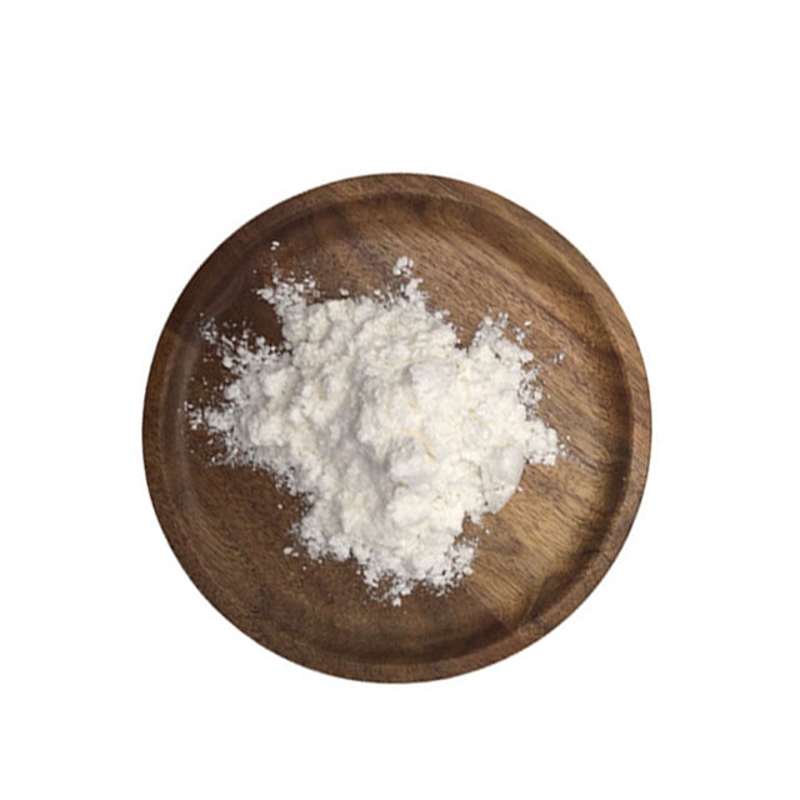Science Signaling: Science Signals cover article that reveals the mechanisms by which oral bacteria cause colorectal cancer to spread.
-
Last Update: 2020-07-29
-
Source: Internet
-
Author: User
Search more information of high quality chemicals, good prices and reliable suppliers, visit
www.echemi.com
Introduction !----: Oral microorganisms, as an important part of the human microbiome, are diverse and complexRecently, researchers at Virginia Tech found that a common oral bacteria causes the spread of colorectal cancer cells and revealed the mechanismThe study was published as a cover story in the journal Scientific SignalsPrevious studies have shown a link between severe gum disease and colorectal cancer, with oral bacteria spread mainly through blood to different parts of the body and to severe infections of the brain, liver and heart, premature birth in pregnant women, and high levels in colon tumorsRecently, researchers at Virginia Tech university found that a common oral bacteria causes colorectal cancer cells to spread and revealed the mechanismThe researchers say 90 percent of cancer-related deaths are caused by non-primary tumors or tumors transferred to other parts of the body, so the findings provide important information for revealing the mechanisms of cancer cell metastasisThe study was published July 21 in the journal Scientific SignalsEntitled "Fusocunucleum host-cell binding and enter or renters IL-8 and CXCL1 life that drives cancer cell" Since 2012, several studies have shown that the bacteria, Fuso nucleuumumum, Fn, can penetrate directly into colorectal tumors, but questions remain about how the bacteria cause cancerA 2017 study showed that when a human colorectal tumor with Clostridium difficile was introduced into mice, cancer cells containing live bacteria would fall off and reattach to the liverThe study is the first to show that nucleobacteria may be directly involved in the process of causing cancer cells to spread throughout the bodyTo uncover the potential mechanism by which nucleocosis causes cancer cell metastasis, researchers at Virginia Tech have asked a question: How do human cells react when colorectal cancer cells are infected with nucleocosis? Their findings provide a deeper understanding of the key role of bacteria in cancerThe origin of the study began with the relatively mild properties of nucleobacillus that interested Daniel Slade and his teamAt first glance, the nucleobacillus is not eye-catching and coexists in harmony with other bacteria under the gums in the oral microbiomeAlthough it is a common bacteria in the mouth, it is closely related to colon cancer and cannot be ignoredAccording to their research, there is no evidence that the bacteria directly cause cancerMoreover, the bacteria also does not appear to release the molecules that cause cancer cells to migrateHowever, the nucleococcal bacteria bind to the sugars on the surface of cancer cells through the Fap2 protein to adhere to the cells and even invade the cancer cells This, in turn, causes cancer cells to release two proteins, IL-8 and CXCL1, which are members of the cytokine protein family and play a key role in activating the immune system against infection Notably, the cytokine combinations of IL-8 and CXCL1 have been shown in several studies to induce the spread of cancer cells However, Slade and his team believe this is the first example of tumor-related bacteria producing this unique combination of cytokines These cytokines released by infected cells can communicate with the cells themselves, or send these signals to other cancer cells, immune cells, and various other cell types around tumors Essentially, an infected cell can affect multiple adjacent cells, so inside the tumor, there is not necessarily a need for a wide range of infections to affect the surrounding large area In addition to causing cell cells to metastasis, IL-8 and CXCL1 are also powerful immune cell lures that can cause inflammation, which is also a hallmark of cancer In the study, Slade and colleagues noted that nucleocobacteria adsorption and infection of neutrophils and macrophages may cause additional cancer-promoting protein release Li Liwu, a professor in the Department of Biological Sciences and an affiliated researcher at the Franlin Institute for Life Sciences, is an important contributor to the research team's understanding of the interactions between nucleobacillus and immune cells Looking ahead to the long-term goal of the Slade team is to advance cancer treatment by revealing the role of bacteria in disease, which may be a key part of the puzzle The study found that cancer cells release metastatic proteins after bacterial infection, opening the door to future research The results provide an insight into the potential methods of inhibiting the secretion of these cytokines In short, these results provide a deeper understanding of how bacteria affect cancer Although the process has been shown to occur in colorectal cancer cells, the team is also exploring whether the same process affects other types of cancer, including pancreatic, breast and oral squamous cell cancers
This article is an English version of an article which is originally in the Chinese language on echemi.com and is provided for information purposes only.
This website makes no representation or warranty of any kind, either expressed or implied, as to the accuracy, completeness ownership or reliability of
the article or any translations thereof. If you have any concerns or complaints relating to the article, please send an email, providing a detailed
description of the concern or complaint, to
service@echemi.com. A staff member will contact you within 5 working days. Once verified, infringing content
will be removed immediately.







